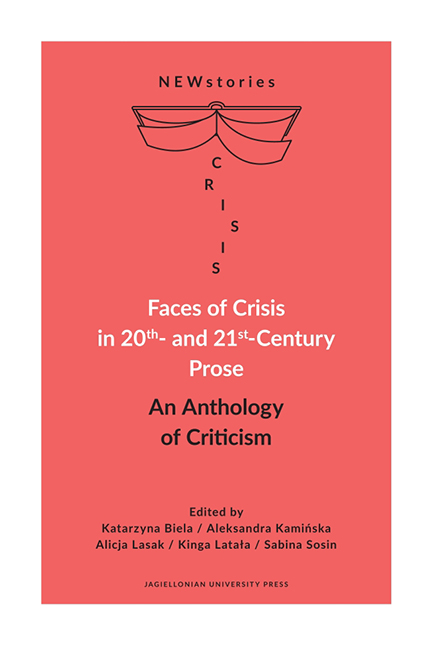Meeting as a Cure for Crisis. B. S. Johnson’s The Unfortunates and Emmanuel Levinas’s Concept of the Other
Published online by Cambridge University Press: 16 July 2022
Summary
Abstract: Concentrating around the British post-war avant-garde author, B. S. Johnson, the essay addresses the question why his fourth novel, The Unfortunates, has been designed as a book-in-a-box and, in Johnson's own words, “seems perhaps the most extreme” of all his works. Given the subject of The Unfortunates, the essay focuses on two crises represented in the novel: the narrator's crisis caused by the loss of his friend and the crisis of Tony's deteriorating body. The friendship is analysed and juxtaposed with Emmanuel Levinas's philosophical concept of the Other. The author's complex motivation for writing the novel is examined as described in his theoretical “Introduction” to the collection of short prose Aren't You Rather Young to be Writing Your Memoirs? as well as in the novel itself. Subsequently, the narrator's relationship with Tony is discussed in connection to Levinas's view that one can live their life to the fullest only with reference to another person. Certain difficulties stemming from the Other's incomprehensibility are also taken into account. Finally, the connections between the book-in-a-box form and the issues addressed in the content are analysed. Johnson's potential strategies to face the crises are outlined and the book is viewed as a tool making it possible for the friendship to continue. The overall argument is based also on literary studies by i.a. Philip Tew, Julia Jordan, Krystyna Stamirowska, and Wojciech Drąg.
B. S. Johnson, a British avant-garde author who published seven novels within twelve years (1963–1975), is especially well-known for his devotion to truth. In the “Introduction” to his collection of short prose Aren't You Rather Young to be Writing Your Memoirs? he contends that “[t]elling stories really is telling lies” and identifies a certain crisis of fiction, assuming it is a futile goal to try to convey anything significant through an invented story (Johnson 1973: 14). Though truth and fiction are opposites to him, a different relationship concerns the novel and truth, which can coexist and serve aesthetic purposes (Johnson 1973: 14). Assuming that each writer decides how to write for themselves, Johnson chooses bringing the latter two together as one of his main creative preoccupations.
- Type
- Chapter
- Information
- Faces of Crisis in 20th- and 21st-Century ProseAn Anthology of Criticism, pp. 73 - 84Publisher: Jagiellonian University PressPrint publication year: 2020



